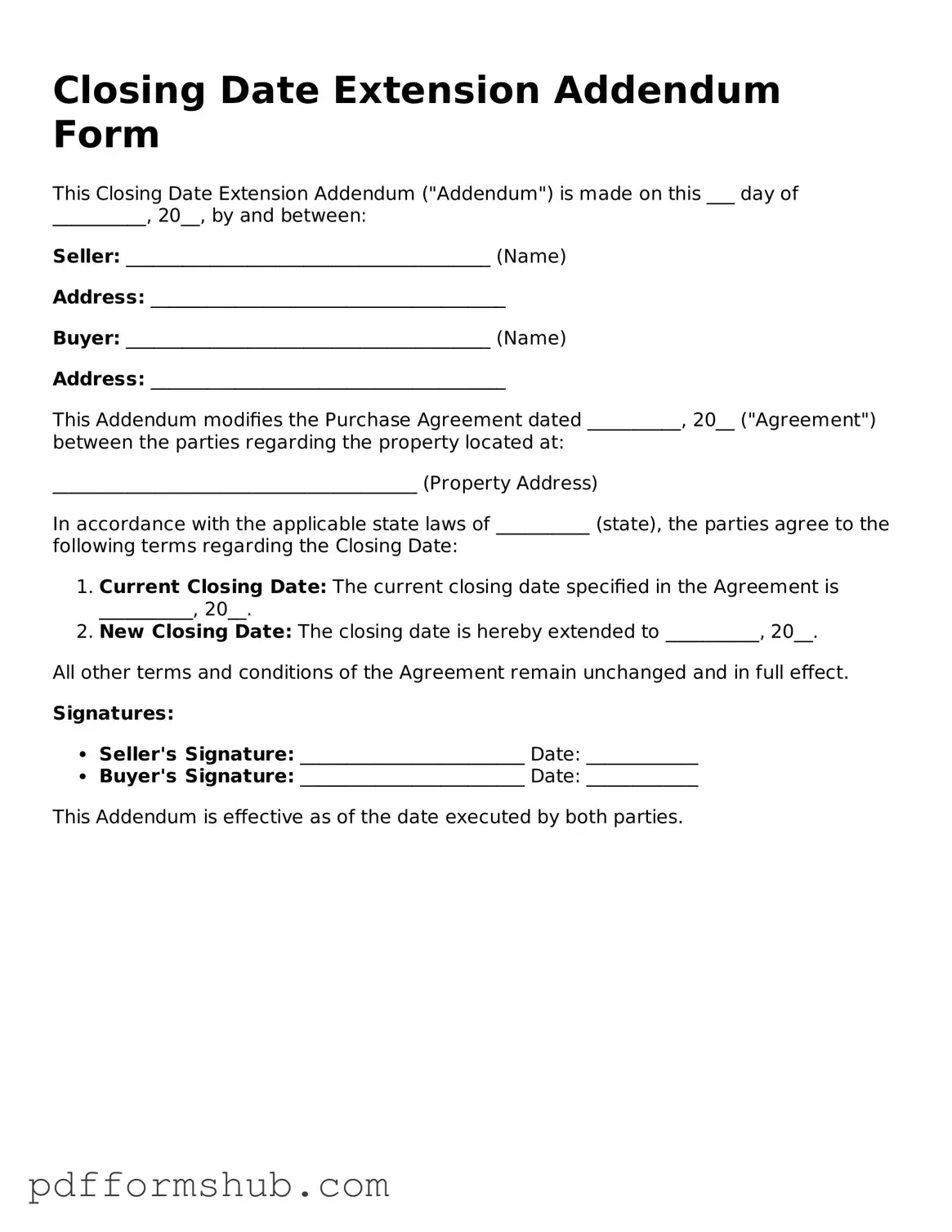Valid Closing Date Extension Addendum Form Form
The Closing Date Extension Addendum Form is a document used in real estate transactions to formally extend the closing date agreed upon by the buyer and seller. This addendum ensures that both parties are on the same page regarding the new timeline, providing clarity and preventing misunderstandings. If you need to extend your closing date, consider filling out the form by clicking the button below.
Customize Form

Valid Closing Date Extension Addendum Form Form
Customize Form

Customize Form
or
Free PDF Form
Short deadline? Complete this form now
Complete Closing Date Extension Addendum Form online without printing hassles.